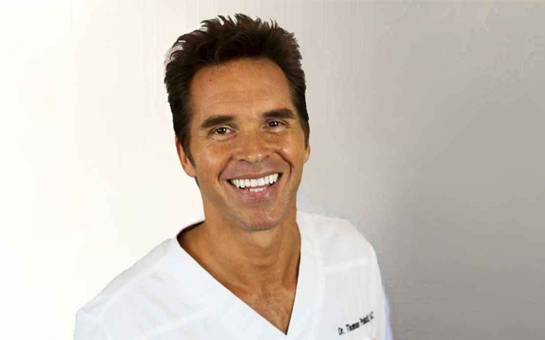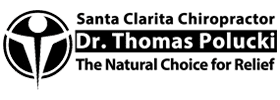Begin Your Journey to Better Health
Head Pain
Santa Clarita Chiropractor can offer a wide range of treatment options to help cure your headaches and migraines.
Neck Pain
If you are suffering from neck and shoulder pain, upper cervical care may be the option for you.

Vertigo
Vertigo and dizziness are often major indicators that something is truly wrong with your neck. So what are the solutions?
Sciatica
Sciatica isn't just about the nerves in your lower back. It's about the spinal cord as a whole. Learn more about our treatments.
Back Pain
What if there was a solution that may be able treat your back pain without drugs or surgery?
Neuropathy
Neuropathy is also known as peripheral neuropathy because of its effect on the body’s sensory and motor nerves.

Chiropractor Santa Clarita CA
Welcome to Santa Clarita Chiropractor in Santa Clarita CA. Chiropractic care is one of the most important aspects of healthcare in order to achieve optimal health. This article is designed to showcase how your Santa Clarita CA chiropractor can provide beneficial care for both you and your loved ones.
Watch one of our many success stories


Request an Appointment
Santa Clarita Chiropractor
If you're looking for an effective and safe way to manage your head, neck, or back pain, please consider this Top Rated Chiropractor in Santa Clarita CA. Upper Cervical Chiropractic care is a drug-free, hands-on approach to health care that has been shown to be effective for treating those conditions and more. So, if you're ready to get your pain under control, request an appointment with Top Rated Santa Clarita Chiropractor, Dr. Thomas Polucki today.
Personalized treatment plans can help. And that often requires a combination of advanced chiropractic care, diet modifications, nutraceuticals, specific exercises, and home therapies.
How Can Chiropractic Care in Santa Clarita CA Help You?
Put another way, we find the source of the problem so that it can be addressed directly instead of just temporarily alleviating symptoms as they arise again and again over time. If you are suffering from migraines, whiplash, sciatica, or vertigo, and want lasting relief, Santa Clarita Chiropractor Dr. Thomas Polucki can help!
This comprehensive approach combines advanced chiropractic care with diet modifications, exercises, and home therapies that help joints, muscles, and nerves heal instead of stifling their cries for help. And provide long-term relief, so that you can work and play as much as you want.
About Dr. Thomas Polucki

- Certified Metabolic Typing Advisor
- Published Author Guide to Self-Care
- Board Certified Doctor of Chiropractic
- Certified Natural Wellness Practitioner
- Developer ABC4Health Noninvasive Exam
- Certified Functional Medicine Practitioner
- Designer of RESN8 Lifestyle Medicine Protocol
- Certified Functional Diagnostic Nutrition Practitioner
- Founder Get BetteRx Nutritional Support Supplements
- Certified Upper Cervical Specific Chiropractic Instructor
Take a look at Dr. Thomas Polucki's Guide To Self-Care book now available on Amazon.


Why Choose Us?
There sure are a lot of Santa Clarita CA Chiropractors and any board-certified doctor of chiropractic can help most people with uncomplicated low back pain. However, if you need anything more than a back crack to get you back on track, Dr. Thomas Polucki provides a wide range of integrative health services tailored to meet your individual needs. At Santa Clarita Chiropractor, our mission is to identify and treat the underlying cause of your pain or discomfort instead of just providing temporary pain management.
Whether you’re looking for: Back Pain Relief, Functional Medicine, Headache Relief, Knee Pain Relief, Migraine Relief, Neck Pain Relief, Neuropathy Relief, Vertigo Relief, Weight Loss, Whiplash Relief... or more, we're here to help!




Begin Your Journey to Health in 3 Easy Steps




